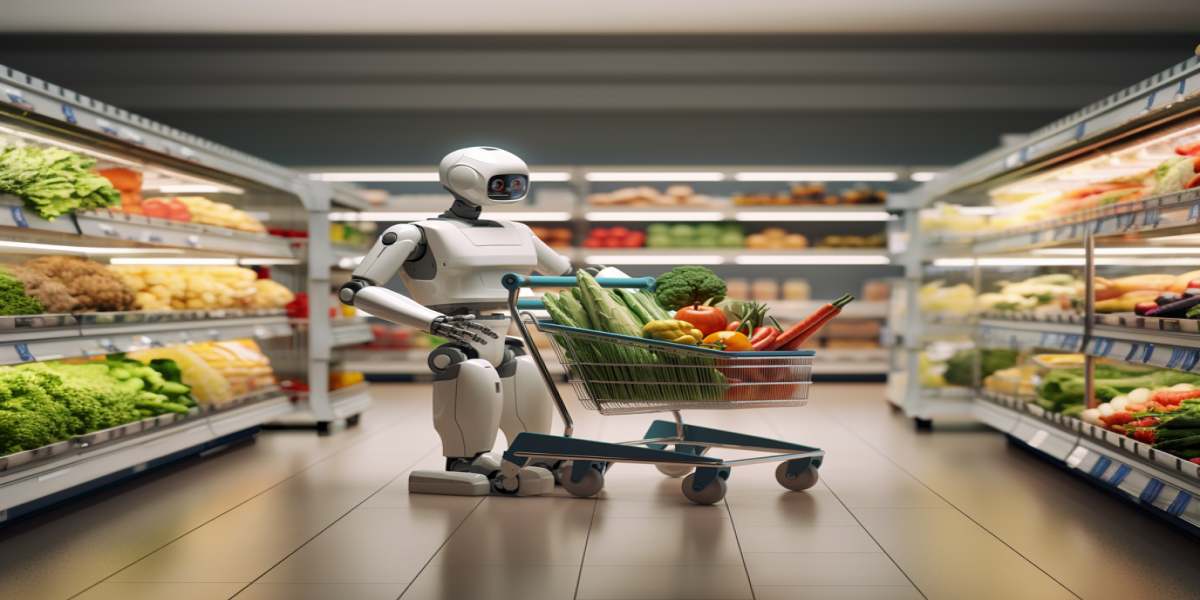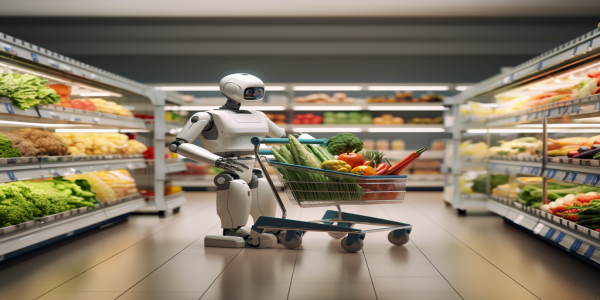Will Food Shopping Be Like This in the Future? A Morning in the Age of Machines at the Supermarket
I am in the store at 8:30 in the morning, feeling a mixture of irritability and drowsiness. Just the early risers are gathering milk, bread, and the necessities before the nine to five grind starts, and the aisles are silent. Theoretically, it is a quiet enough time to shop. Although there are several checkouts, there is a problem: no staff member is there to man them.
A worn-out, monotone voice then reverberates throughout the store through the ceiling speakers: "All green card holders to checkouts, will all green card holders go to checkout—if you can be arsed."
In no way would you describe it as motivational.
I move to the self-service area since there is no one at the staffed tills. The antiseptic process of scanning and bagging starts there. After I get my bags ready and scan my loyalty card, it beeps—into the bag. Beep—into the bag. Bong, hold on for help.
The lights on my machine are blinking like a broken lighthouse. However, nobody shows up. I am given the go-ahead to proceed after a brief period of uncertainty. Bag. Beep. Beep. Bag. Bong. Again.
A short line has formed behind me, with customers clutching their baskets like life rafts and hoping they would not be caught behind anyone. And I am that person now.
Where Have All the People Gone?
At times, I find myself on the opposite side of this picture, standing with my own basket and watching helplessly while someone struggles with a barcode while the light blinks. It raises the question:
Will shopping become like this? Will supermarkets soon be devoid of any human faces working behind the counter?
The quick conversation about the weather, the gesture of recognition, and the implicit connection made over eggs and canned tomatoes all have an oddly personal quality. Yes, it can be clumsy, hurried, or even a little annoying. However, sometimes you get a gem of a cashier—the type that helps you pack with the grace of someone who truly cares, rather than just scanning. A little but impactful deed.
Others, of course, slow down scanning to a crawl, dragging out the task like a passive protest, daring you to see how little they care. You can not hold them solely responsible. Work in retail is never-ending. At the end of the shift, someone is still attempting to pay their rent, keep the lights on, and possibly buy their own groceries behind those weary eyes.
Technology Has Arrived, But Can We Trust It?
But the machines never stop working. They do not sigh. Remember to have them scan your nectarines. They do not smile, though. You can now order a whole meal at some McDonald's restaurants without speaking to anyone. Additionally, I saw a prototype of an electric delivery van with a robot that delivers your package right to your front door at a recent scientific show. No chauffeur. Do not knock. Your Amazon box is being extended like it is the most commonplace thing in the world by a metal limb.
In the near future, drones may even fly like digital carrier pigeons.
And Alexa comes next. Alexa, who came to live with us one Christmas, was kind and a little scary. At first, I was not sure what to think of her.
She can perform any song you ask her to perform with uncanny precision. However, I can not get rid of the sensation that she is always listening. Not only to my vocal instructions, but also to my dialogues. My routine. My life.
The idea that an advertisement could appear on my phone within an hour whenever I mention anything like tea towels or turmeric is unnerving. Perhaps that is a coincidence. Perhaps it is covert surveillance.
Machines, Food, and the Future We are already alive.
So yes—food is the future. In other words, the way we obtain our food is evolving more quickly than we can identify the changes. Shopping, which was once a human experience, is evolving into something colder, sleeker, and more "efficient"—but perhaps less alive.









